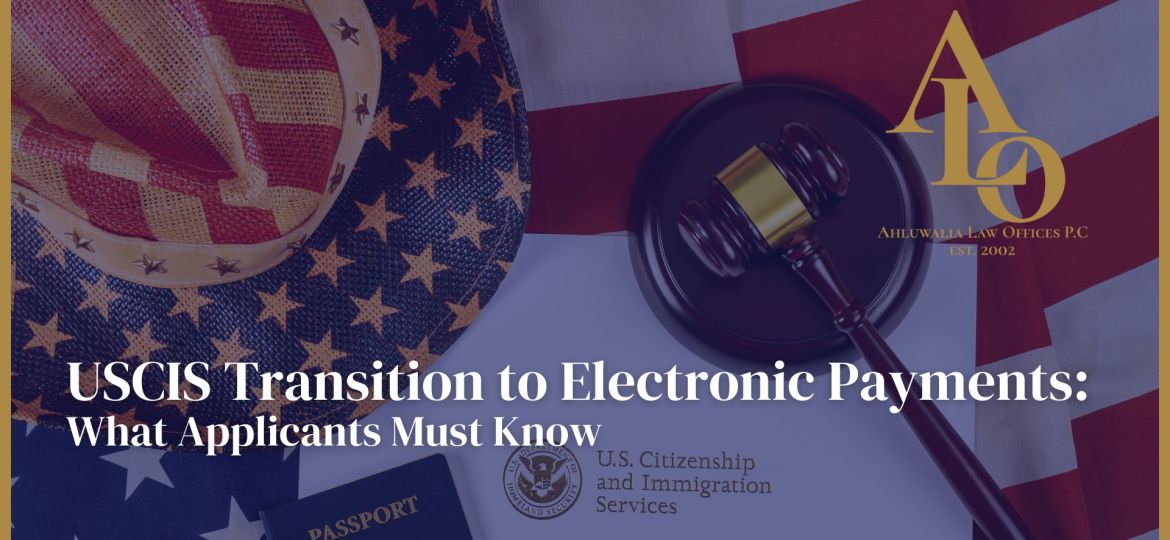
On August 29, 2025, U.S. Citizenship and Immigration Services (USCIS) announced a significant policy change: beginning October 29, 2025, USCIS will transition to primarily electronic payments for immigration benefit requests. This shift aligns with Executive Order 14247, “Modernizing Payments To and From America’s Bank Account,” which mandates electronic payments in federal transactions.
Key Payment Changes
- ACH Debit Option Introduced: Applicants and petitioners can now authorize direct debit payments from U.S. bank accounts using Form G-1650, Authorization for ACH Transactions.
- Credit Card Payments Remain Available: USCIS will continue accepting Form G-1450, Authorization for Credit Card Transactions, for payments by U.S. credit, debit, or prepaid cards.
- Paper Payments Phased Out: After October 28, 2025, USCIS will no longer accept paper checks or money orders, except for certain limited exemptions.
- Exemption Process Pending: A new Form G-1651 is expected to be released before or on October 28, 2025, to request exemptions. Applicants without U.S. banking access may need to use prepaid U.S. cards.
Timeline to Transition
- Now through October 28, 2025: USCIS will accept checks, money orders, ACH debit (Form G-1650), and credit card payments (Form G-1450).
- Beginning October 29, 2025: Only ACH debit and credit card payments will be accepted unless an exemption is approved.
Compliance and Practice Considerations
- Payments must be drawn from a U.S. bank and in U.S. dollars. Foreign bank transactions will not be accepted.
- A separate Form G-1650 or G-1450 must be submitted for each application, petition, or request.
- Insufficient funds, debit blocks, or mismatched payments may result in rejection of the filing or even revocation of an approval.
- For premium processing fees, USCIS advises using a separate payment form for accuracy and compliance.
What This Means for Applicants and Employers
This modernization aims to improve efficiency and security. However, the removal of paper payments eliminates a traditional way applicants tracked filings through cleared checks or money orders. Applicants and employers must now adjust their processes to ensure accurate, timely, and trackable electronic payments.
At Ahluwalia Law Offices, PC, we strongly recommend consulting with immigration counsel before submitting applications under this new system. With electronic payments becoming mandatory, even small errors in payment authorization may lead to costly delays or denials.

